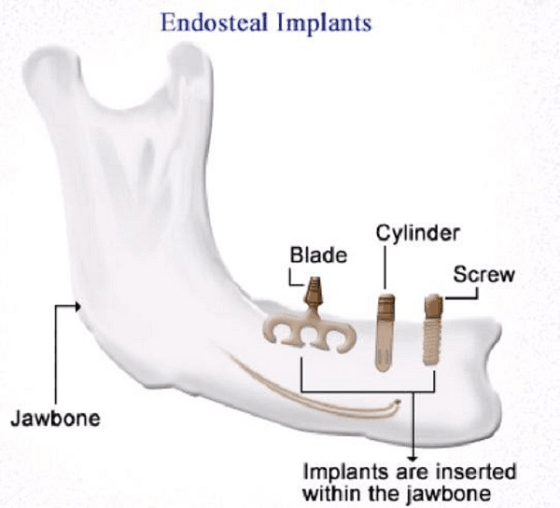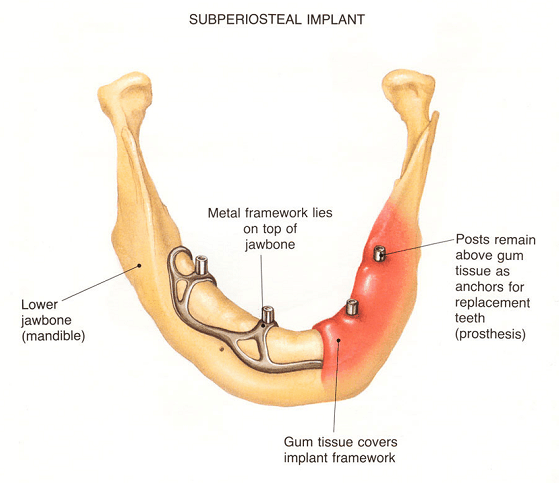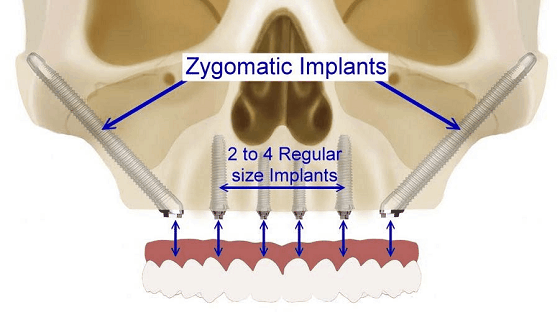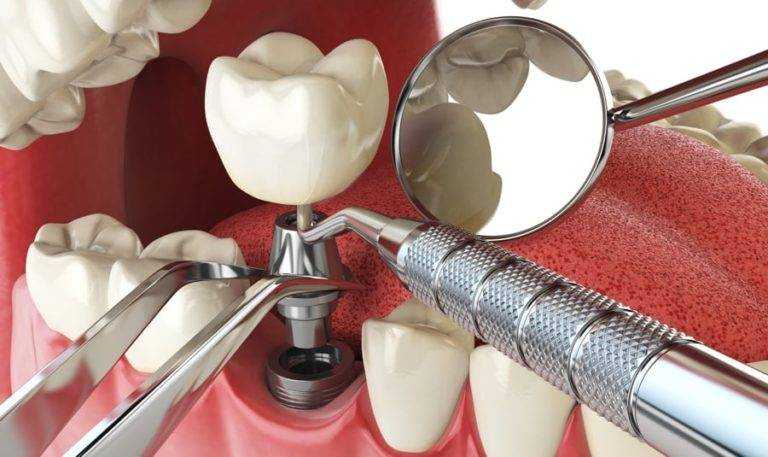Losing a tooth is scary for most of us, isn’t it? In fact, a large number of people fear to lose their teeth so much that they actually have scary dreams about it! This may sound funny to some, but the fact is losing one or more teeth can actually have a strong impact on one’s mental and physical health.
However, with the advances in dentistry, there are some excellent ways to replace missing teeth. The best way to substitute teeth that one may have lost is by using dental implants. Since not much is known about implants and different types of dental implants, let’s understand a bit more about them!
What are Dental Implants?
Until a few years back, replacing one or more missing teeth meant either removable dentures or fixed bridges. However, each of these treatment options had their own disadvantages. While dentures were removable, many young patients had their qualms about wearing it as they thought it made them feel they were ‘old’.
Bridges were more sought after as they were fixed and looked more natural than dentures did. However, in order to fabricate a bridge, the teeth adjacent to the missing tooth or teeth need to be shaped and modified. Also, bridges were not possible in all cases.
So, there was an inherent need to come up with an option that helped solve the problems of dentures and bridges. And enter – Implants! There are different types of dental implants but before we get there, let us understand what a dental implant really is.
Implants are fixed and the most natural-looking replacements for missing teeth.
They are made up of two parts – the titanium screw which is placed inside the bone and the crown or cap that is placed on top of the screw. The screw which is placed inside the bone integrates with it, thereby providing a strong foundation. The cap placed on the screw is usually fabricated with superior quality ceramics to make it look as natural as possible.
There are different types of dental implants and their integration and placement in the jaw bone vary based on the type of dental implant chosen. Once the dental implant treatment is completed, the entire implant looks like a natural tooth erupting from the gum!
Procedure Involved in Implant Placement
Most people who lose teeth, especially their front teeth, wish to get them replaced as soon as possible. While it takes 3-5 days to get a removable denture fabricated, it takes slightly longer (about 5-7 days) to get a bridge for one’s missing teeth. But, how long does an implant take?
In a healthy individual with no underlying disease conditions and a healthy bone density in the area of the missing tooth or teeth, implant placement can be scheduled right away. In others, the dentist or implantologist needs to perform some additional evaluations before an implant can be placed.
Irrespective of the different types of dental implants used, the implant placement procedure is divided into two stages – placement of the screw followed by a waiting period and the placement of the cap.
- Placement of the Titanium implant screw: This is the first step in implant placement and is done at your dentist’s office under local anesthesia like any other dental procedure. This placement of the screw is done inside the jaw bone and it is allowed to remain there for up to 3 and sometimes up to 6 months to allow the screw to integrate well with the jaw bone. The surgical procedure of the screw placement can take anything between 30 to 90 minutes.
- Placement of the cap: After the waiting period is over, your dentist will evaluate the screw and its integration using x-rays. Once he/she is satisfied with the integration of the screw, the next step of fabrication of the cap is done.
Types of Dental Implants
There are three types of dental implants that are used:
- Endosteal Implants
- Subperiosteal Implants
- Zygomatic Implants
While the endosteal implant is the most commonly used and safest, the zygomatic implants involve a more complex procedure and are rarely used in clinical practice.
- Endosteal Implants
As mentioned above, endosteal implants are the most commonly used and the safest of all types of implants. They require a healthy, dense jaw bone for the implant to fuse with. Most healthy patients, with good bone density, are candidates for an endosteal implant.
The titanium screw is placed inside the bone and allowed to integrate into the bone. Once the integration is complete, the cap or crown is placed on the screw.

However, many people are a bit wary when it comes to placing something inside their bones. For those of you, the next type of dental implant or the subperiosteal implant should be your treatment choice.
- Subperiosteal Implants
Of the different types of dental implants, this is the second-best alternative to endosteal implants. Unlike the endosteal implants that are placed ‘inside’ the jaw bone, subperiosteal implants are placed just above the bone, yet inside the gums.
The titanium screw is placed inside the gum and sealed. Once the gum heals around this screw, the cap is placed on top of it to complete the treatment.

This type of dental implant is used when a patient doesn’t have enough density or height of the jaw bone required for the placement of other types of implants. There are ways to add or increase the height of bone in a particular region of the jaw. However, not many people are comfortable doing so for an endosteal implant and hence, subperiosteal implants are the best option for them.
- Zygomatic Implant
Among the three different types of dental implants, zygomatic implants are the least commonly used. The main reason for this is the complex procedure involved in its placement. Zygomatic implants are done only when there isn’t enough bone to place an endosteal implant. In this case, the implant screw is placed in the cheek bone rather than the jaw bone.

Who Should Get Dental Implants?
Any healthy individual with one or more missing teeth, a good bone density and no underlying bone-related diseases is a good candidate for dental implants. In fact, A person who is efficient enough to undergo with tooth extraction procedure can get dental implant treatment.
Apart from this, the different types of dental implants used require thorough dental hygiene measures to be maintained by the patient to keep the gums and bone surrounding the implant healthy.
Further evaluation and investigations are required in individuals who are suffering from chronic diseases like diabetes, cardiac conditions, rheumatic and other bone diseases, smokers and people who have had radiation therapy. These conditions can cause implant failure.
The different types of implants are usually suggested to people with:
- One or more missing teeth in one or both the jaws
- Back teeth missing
- Front teeth missing
- All teeth missing in one or both jaws
- In patients who cannot tolerate removable dentures
- Individuals who wish to have superior quality aesthetics of the teeth (as natural looking as possible)
If you wish to replace your missing teeth with the different types of dental implants, visit our Sabka Dentist clinics today! Our team of in-house dental experts will help you choose the best treatment possible for you.
Expert’s Opinions
- Dr. Rupali Gujar Dental Director of Sabka dentist says “IImplants are the best way to replace missing teeth and have a success rate of about 98%.”
- Dr. Preethi Nagarajan Dental Director of Sabka dentist says “Endosteal implants are the safest and the most commonly placed implants.”
- Dr. Zita Antao Dental Director of Sabka dentist says “Implants can be used to replace one or more than one missing teeth, sometimes even an entire arch.”










